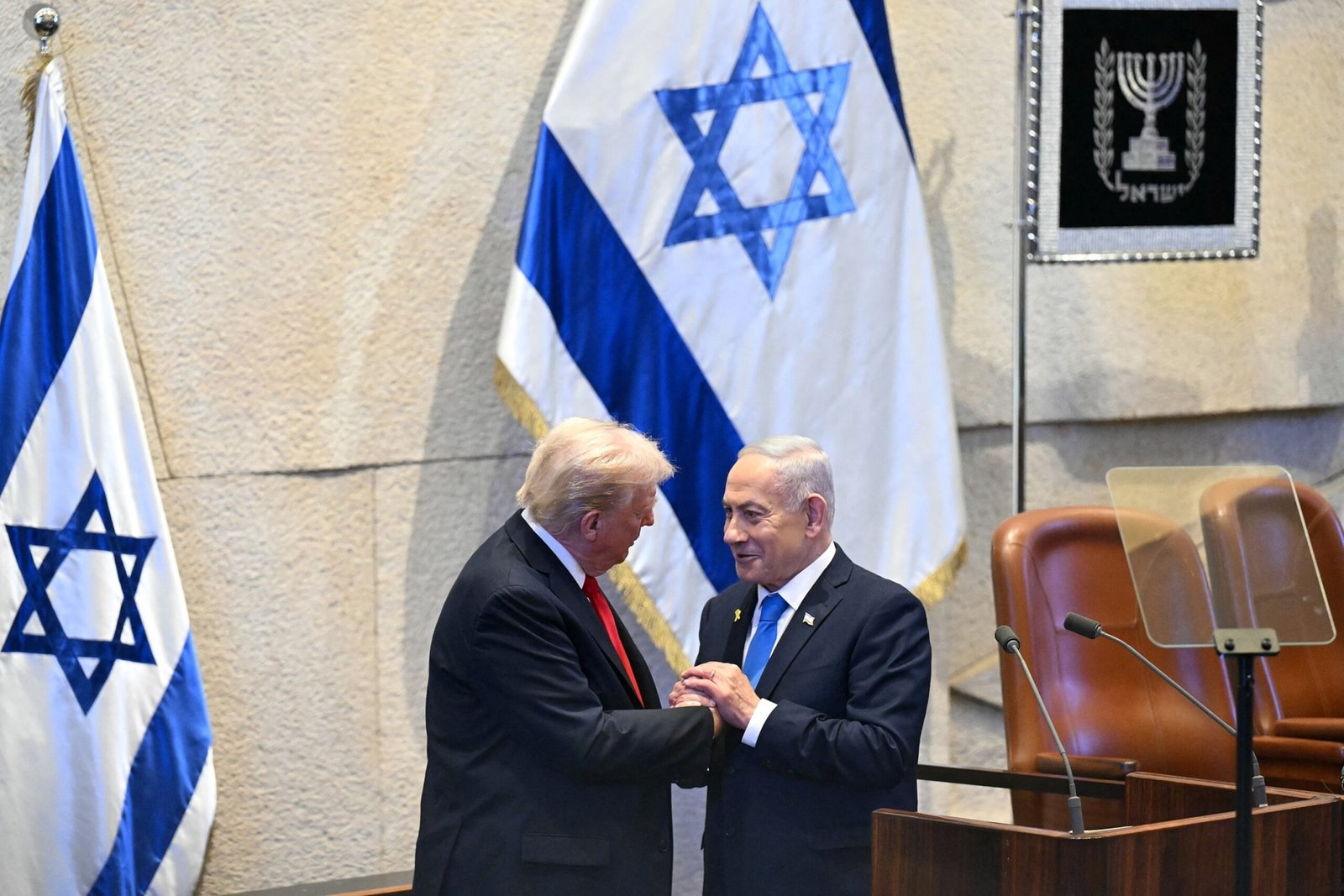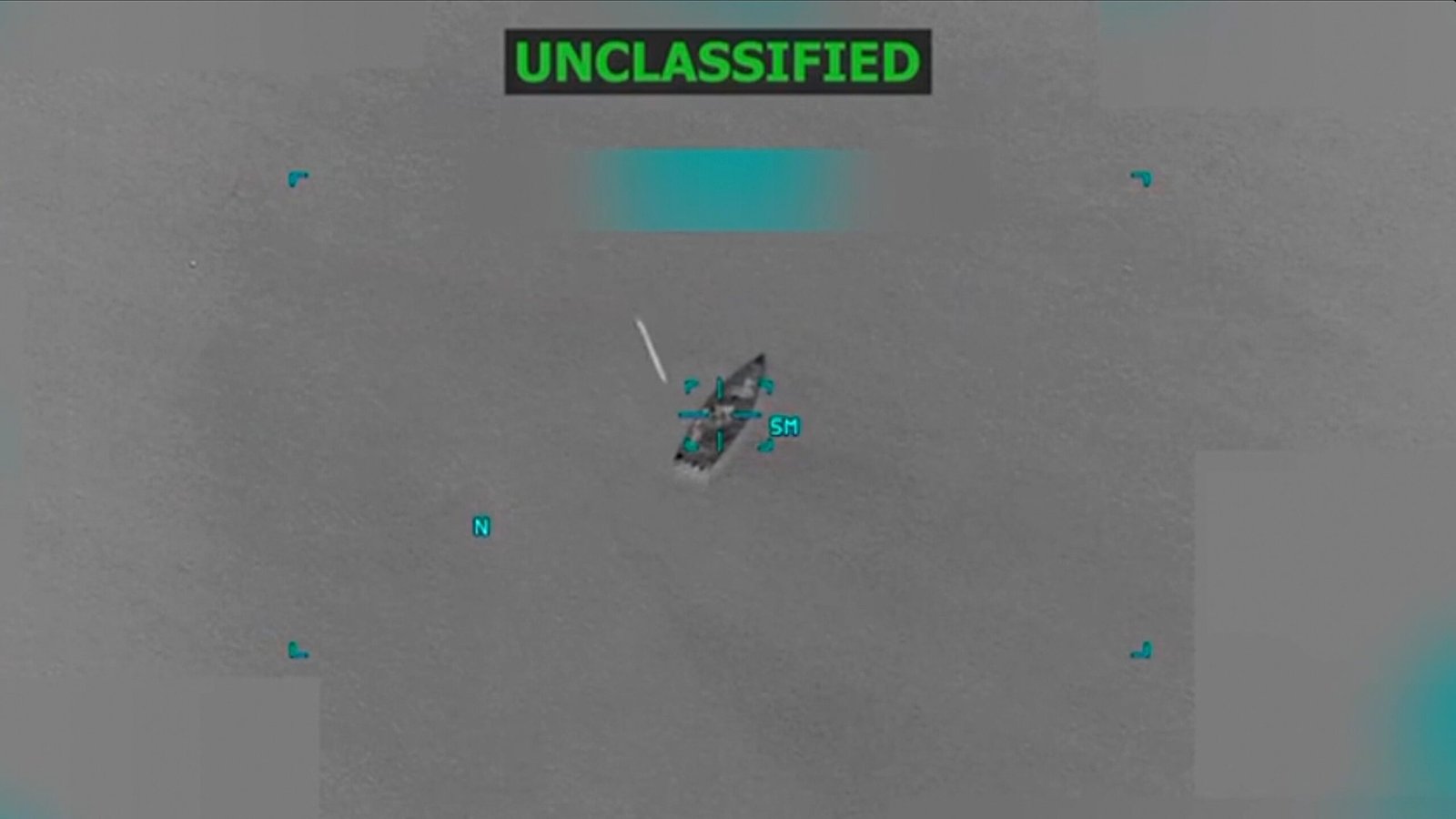While President Donald Trump has declared the war between Israel and Hamas over, some Middle East experts say the process to end the two-year conflict is just beginning.
Monday’s historic release of the remaining live Israeli hostages in Gaza and the simultaneous release of more than 1,900 Palestinian prisoners who had been held by Israel is just part of the first step of Trump’s 20-point plan to bring peace to the region.
“After so many years of relentless war and endless danger, today the skies are calm, the guns are silent, the sirens are silent, and the sun rises on a Holy Land that is finally at peace, a land and a region that will live, God willing, in peace for all eternity,” Trump said in a speech Monday to the Israeli parliament.
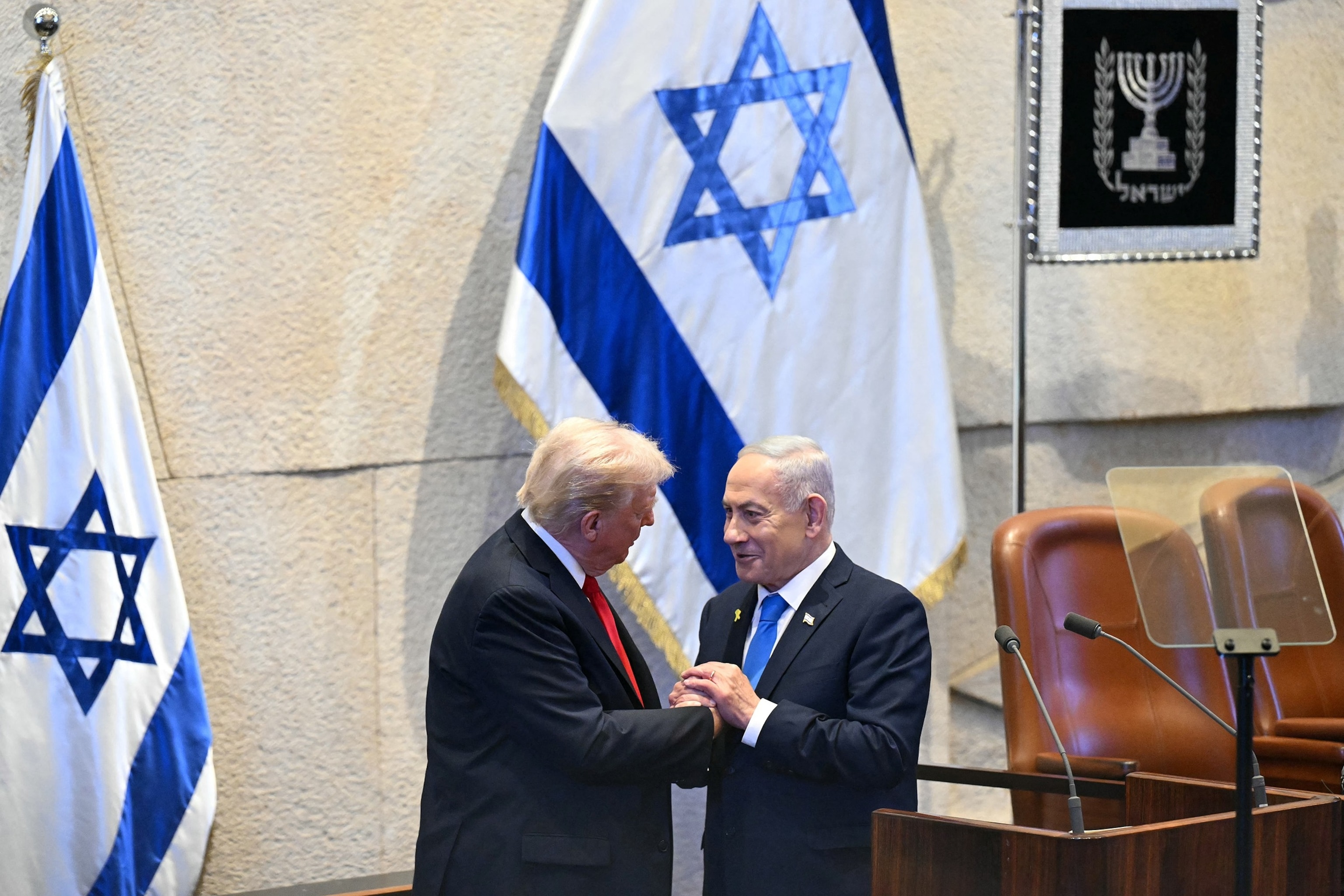
President Donald Trump speaks with Israeli Prime Minister Benjamin Netanyahu at the Knesset, Israel’s parliament, on October 13, 2025, in Jerusalem.
Saúl Loeb/Pool/AFP via Getty Images
Trump added: “This is not just the end of a war, it is the end of an era of terror and death and the beginning of the era of faith and hope and God. It is the beginning of a great concord of lasting harmony for Israel and all the nations of what will soon be a magnificent region.
While Israeli Prime Minister Benjamin Netanyahu has been hesitant to say publicly that the war with Hamas was over, he said during a speech preceding Trump’s speech that he is “committed to this peace.”

Family and friends of hostage Elkana Bohbot react as they gather to watch his release from Hamas captivity, on October 13, 2025 in Mevaseret Zion, Israel.
Amir Levy/Getty Images
“Mr. President, we welcome you here today to thank you for your critical leadership in putting forward a proposal that won the support of almost the entire world, a proposal that brings all of our hostages home, a proposal that ends the war by achieving all of our goals, a proposal that opens the door to a historic expansion of peace in our region and beyond our region,” Netanyahu said.

Freed Palestinian prisoners look from a bus after being freed by Israel as part of a hostage-prisoner exchange and ceasefire agreement between Hamas and Israel, in Khan Younis, southern Gaza Strip, on October 13, 2025.
Mahmoud Issa/Reuters
“Mr. President, you are committed to this peace. I am committed to this peace and together, Mr. President, we will achieve this peace,” the prime minister said.
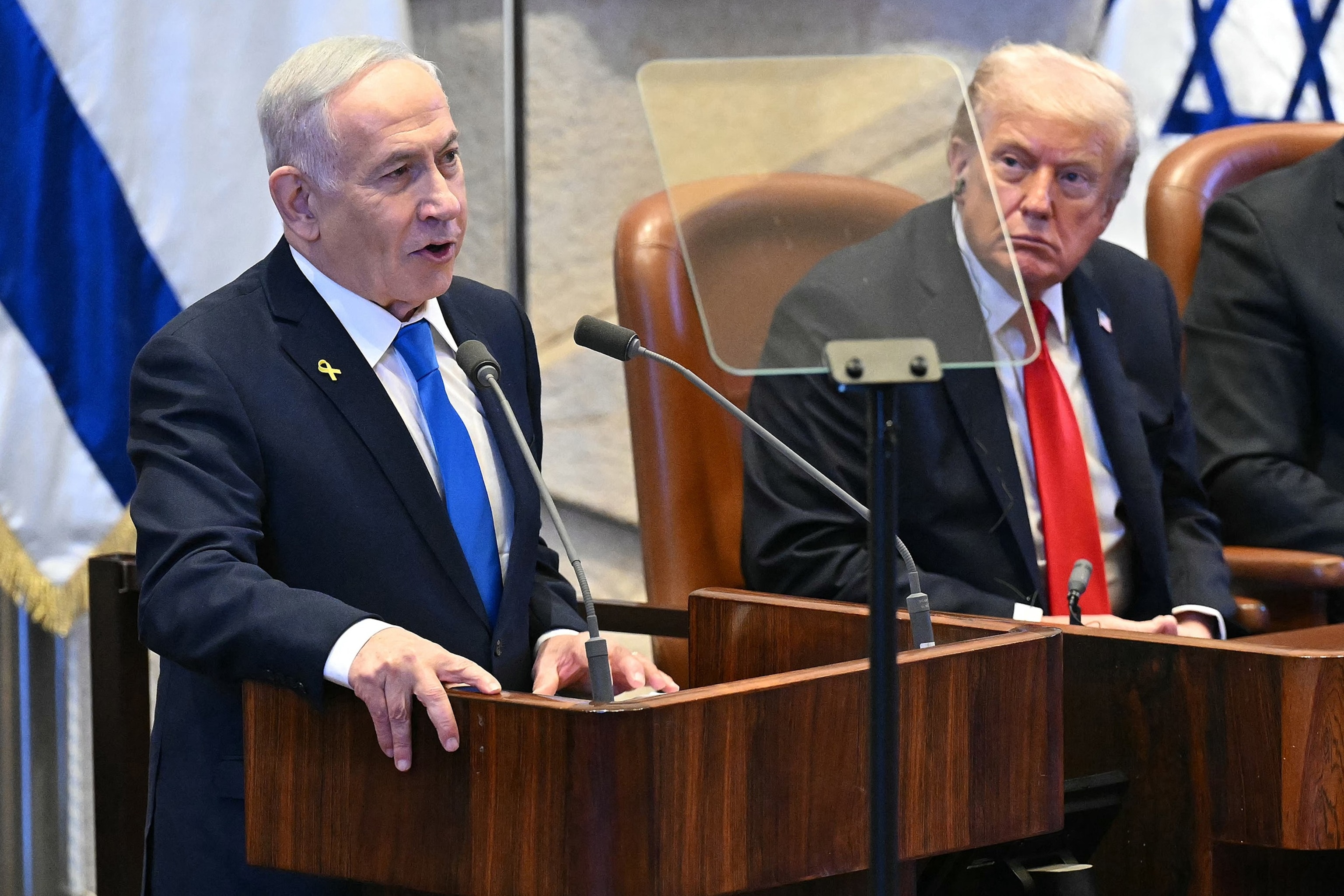
President Donald Trump listens to Israeli Prime Minister Benjamin Netanyahu as he addresses the Israeli parliament, the Knesset, in Jerusalem, October 13, 2025.
Saúl Loeb/Pool/AFP via Getty Images
Following his visit to Israel, Trump flew to Sharm el-Sheikh, Egypt, for a peace summit he co-chaired with Egyptian President Abdel Fattah el-Sisi and where the official signing ceremony for his ceasefire proposal took place on Monday afternoon.
Opening the summit, el-Sisi praised Trump for negotiating a peace deal that is beneficial to the entire region. He invited Trump to “join peace-loving leaders, leaders who advocate for peace in the world.”
“At this historic milestone, where we are all together, [and] “I witnessed the achievement of this Sham el-Sheikh agreement to end the war in Gaza,” el-Sisi said.
He went on to call the agreement “a glimmer of hope that such [a] “The agreement ends a dying chapter in human history and opens the door, ushering in a new era of peace and stability in the Middle East.”
Experts said that despite the historic initial phases of the peace proposal being implemented, the meeting in Egypt, which included more than 20 world leaders, is where the difficult next steps begin.
Michael Ratney, former US ambassador to Saudi Arabia during the Biden administration, said that while it is difficult not to get caught up in the excitement of celebrations for the release of hostages and prisoners, there is a long way to go before peace is achieved.
“I’d like to say it was peace. It’s not peace yet,” Ratney told ABC News on Monday. “There is a lot of work, and that includes many of the measures that are in that 20-point plan that the White House published.”
Sources familiar with the negotiations told ABC News that agreements still need to be reached on some of the most difficult points of the plan. These include the full withdrawal of Israeli forces from the Gaza Strip, the relinquishment of control of Gaza by Hamas, the disarmament and dismantling of the militant group, and the transfer of the Gaza government to an international trusteeship overseen by the United States and its Arab allies.
“I don’t know if it’s an obstacle, but certainly a challenge. And one of them right now will be the process under which Hamas is demilitarized and demobilized as a terrorist organization or as a militant organization,” Javid Ali, former senior director of counterterrorism at the National Security Council, told ABC News on Monday.
While flying to the Middle East overnight, Trump implied to reporters on Air Force One that Hamas had been given the green light to act as a Palestinian police force in Gaza “for a period of time.”
“They are standing because they want to stop the problems, they have been open about it and we gave them approval for a period of time,” Trump said.
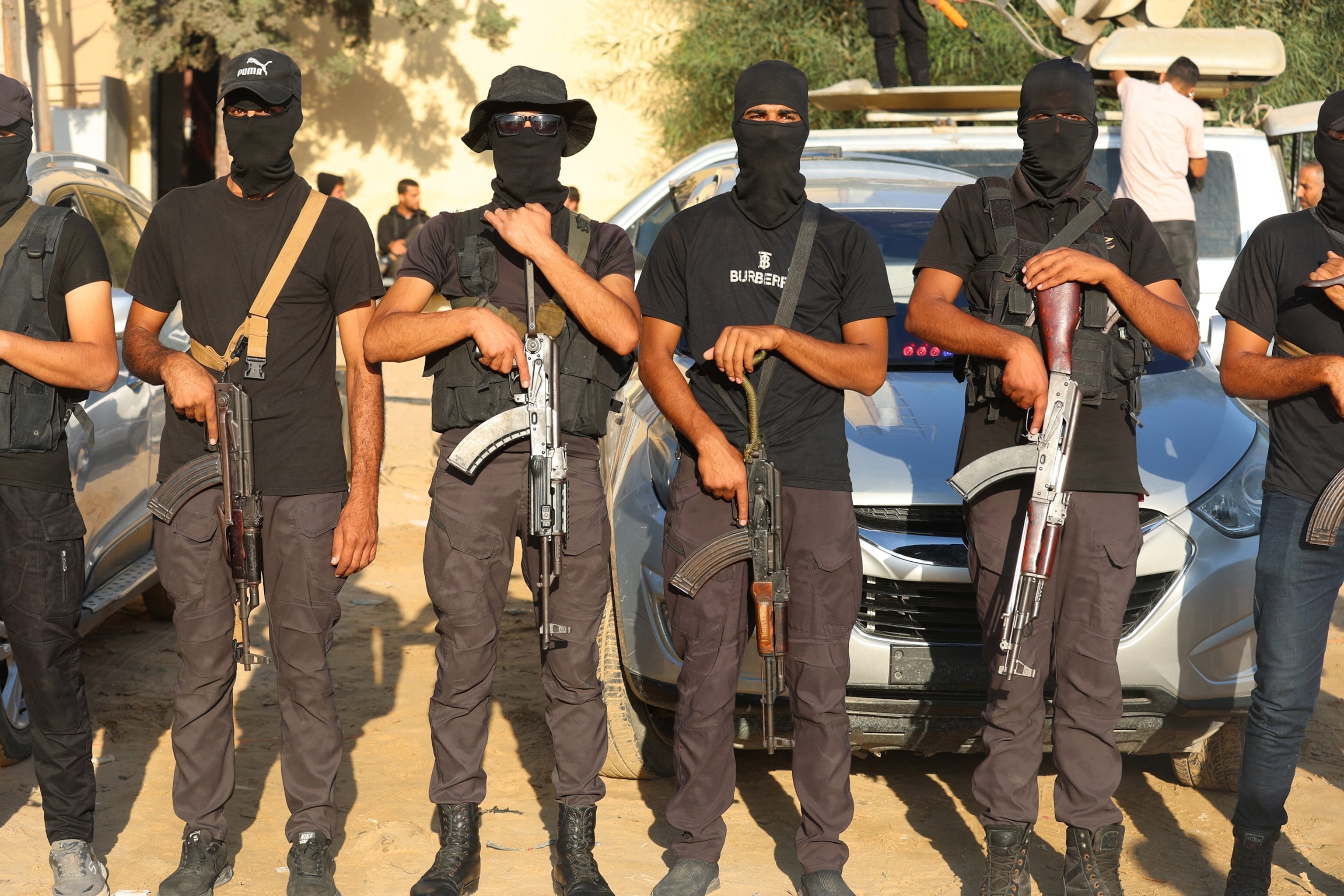
Palestinian militants stand guard on the day hostages held in Gaza since the deadly Oct. 7, 2023, attack are handed over to the International Committee of the Red Cross in Khan Younis, southern Gaza Strip, Oct. 13, 2025.
Ramadan Abed/Reuters
He added: “You have to understand that they have probably lost 60,000 people. That is a huge retaliation. They have lost 60,000 people, and those who are alive now were, in many cases, very young when all this started, and we are watching to make sure there are no major crimes, or some of the problems that you have when there are areas like this that have been literally demolished.”
Ali said it will be a long time before Hamas lays down its arms as required by Trump’s proposal.
“It is still unclear who will actually oversee that demobilization and demilitarization, whether it will be the Israel Defense Forces or this international security body that is not yet integrated and on the ground,” Ali said.
Ali said there have been other examples throughout world history of rebel groups cooperating with peace agreements after long periods of fighting. He noted that the Irish Republican Army did so in the late 1990s after a long struggle with the British government, and that the Revolutionary Armed Forces of Colombia, a guerrilla group Also known as FARC, they agreed to disarm in 2016 after signing a ceasefire agreement. with the Colombian government.
“You literally have to account for the fighters, the people who would take up arms for these organizations, make sure they don’t have the weapons or the ability to carry out terrorist acts or militant operations,” Ali said.
An example of how fragile the ceasefire proposal is emerged Monday when the Hostage Families Forum accused Hamas of violating the agreement by releasing the remains of only 4 of the 28 hostages who died in captivity.
“We hope that the government of Israel and the mediators will take immediate steps to rectify this grave injustice,” the Hostage Families Forum said in a statement.
On Tuesday morning, both Hamas and the Israel Defense Forces They accused each other of violating the agreement after IDF troops opened fire on Palestinians, killing five.
The IDF alleged that the Palestinians violated the ceasefire by crossing the yellow line in Gaza and approaching IDF soldiers. Hamas spokesman Hazem Qassem issued a statement denying the allegations and accusing the IDF of violating the agreement by attacking the Palestinians with “shelling and shooting.”
Andrew Miller, a senior fellow at the Center for American Progress, told ABC News that there is no desire among the international community for Israel to resume the war, especially now that all the hostages have been freed.
“We have already seen a groundswell of international opposition to Israel’s operation,” Miller said.
Mick Mulroy, ABC News defense and national security analyst and former deputy assistant secretary of defense for the Middle East, said the success of the ceasefire plan depends on both sides keeping their promises.
“The only way this plan will work is if both sides follow through on what they agreed to do,” Mulroy said. “Any one of them falls apart and could challenge the rest of the plan.”
Trump, however, expressed optimism in his speech at the peace summit, telling world leaders gathered in Egypt: “This took 3,000 years to get to this point. Can you believe it? And it’s going to hold up, too. It’s going to hold up.”

